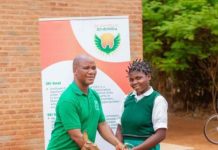By nyasatimes
Africa-Press – Malawi. Malawi’s fuel crisis is not a temporary inconvenience and it is not simply a matter of delayed tankers. What Malawians are experiencing is the outward symptom of a deeper, long-running economic unravelling. The government may announce deliveries, credit lines and distribution arrangements — but unless the structural causes are addressed, the queues will return, again and again.
In Parliament this week, Energy Minister Jean Mathanga announced the arrival of ninety-two fuel tankers and ongoing negotiations for credit facilities ranging between 120 and 150 million US dollars. On paper, these actions suggest movement and response.
In reality, they merely demonstrate how precarious the fuel supply chain has become. The expected fuel volumes will only cover a few days of national consumption. The credit talks underscore an uncomfortable truth: Malawi does not have the foreign currency to pay for fuel imports outright, and suppliers are increasingly unwilling to extend credit.
The real crisis, therefore, is not fuel scarcity. It is foreign exchange scarcity.
For years, Malawi has failed to generate sufficient export earnings to fund its imports. Tobacco receipts have declined, key export sectors remain underdeveloped, and the economy has grown more dependent on imported goods — including fuel, fertiliser, pharmaceuticals, manufacturing inputs and basic commodities.
The Reserve Bank has been forced to ration foreign currency, prioritizing some sectors while delaying payments in others, creating a cycle of shortages, panic buying and price spikes. Fuel, by nature, requires constant, uninterrupted hard currency financing. Once payments are delayed, supplier confidence collapses — and rebuilding that trust is far more difficult than arranging emergency shipments.
The Minister was also correct to note Malawi’s vulnerability to external shocks. The country depends heavily on Tanzanian ports for fuel transit, and the recent political unrest in Tanzania simply exposed how fragile the supply chain has always been. With limited strategic reserves and small domestic transport capacity, Malawi has no buffer, no margin for disruption, and no resilience in the system. One border crisis becomes a national crisis in a matter of days.
But this vulnerability did not appear overnight. It is the result of years of deferred investment, short-term procurement decisions, and a failure to build a diversified, shock-resistant supply network. Political leaders have repeatedly managed fuel supply as a crisis issue instead of a strategic economic one. The latest government-to-government procurement reforms may hold long-term potential, but in the short term they have slowed supply cycles and introduced uncertainty at a time when the system cannot afford hesitation.
The central reality remains: Malawi cannot solve the fuel problem without solving the economic problem.
The country must rebuild foreign exchange reserves, revive export sectors, restore confidence with suppliers, expand storage, increase logistical capacity and insulate procurement processes from political interference. These are not quick fixes. They require policy discipline, institutional reform and sustained political will — qualities that have too often fluctuated between administrations.
The arrival of fuel tankers this week may ease frustration at filling stations, but it does not change the trajectory. Without structural changes, Malawi will continue to live from shipment to shipment, loan to loan, crisis to crisis.
The harder the truth, the more necessary it is to say plainly: Malawi does not have a fuel problem. Malawi has an economic model that can no longer sustain itself.
Until that is confronted, we will simply be waiting in different queues — for fuel today, for fertiliser tomorrow, for foreign currency the week after — all while the system continues to strain under its own weight.
Source: Malawi Nyasa Times
For More News And Analysis About Malawi Follow Africa-Press






